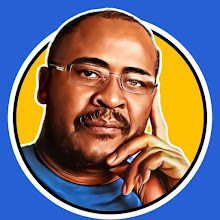“I am a product of Zimbabwe, uNcube , Mukanya(my African totem), mfane khaya, mwana wevhu, son of the soil, that’s one of the reasons I created a public profile!”

However being a product of Zimbabwe, does not translate to blindly following Zimbabwe’s leaders for the sake of being on the right side of history. I never forced myself to be a part of the history of Zimbabwe nor to be born into a political leadership family. I also do not subscribe to the politics of polarization as it is a waste of time, the more you wrestle with the devil, the more he loves it, just because of my previous family links with the ruling party or because I am historically linked. I prefer to base my arguments in public debates from experience and knowledge of the topics of discussions that I participate in. I am also not a fan of personality politics as it focuses too much on petty leadership gossip rather than real matter’s affecting society. I have noted through various discussions and media publications that focus has been on leader’s political positions rather than discussion of economic, political and security sector reforms. Our opposition politics focuses on public campaigns discrediting Mugabe and ZANU PF rather than presenting alternative solutions capable of addressing the problems faced by society or more ideal creating environments that promote economic growth and development.
It is inevitable that one of these days, in the very near future a new generation of Zimbabweans will have the opportunity to take over leadership of Zimbabwe. When that moment presents itself, few will want to keep wearing the same shoes as those who fought the struggle for the simple reason of change as we live in constantly changing environments where the needs of society require new innovative ways of developing stronger social bonds that can help strengthen our socio-economic and political environments. Maybe some may enjoy hero worshipping leader's for what ever reasons but I'm sure most do not want to be seen in the same light of negativity that has haunted our leaders from our own people and the rest of the world, but rather to remember them for their more positive achievements that have continually challenged a global perspective of the rights of an AFRICAN as an equal global partner. This is not to say no good has come from current leadership of the country, but the good that has been done is recommendable and should be used as a foundation to help strengthen the weak areas where they failed to achieve.
So what can a new generation of leaders do differently? Few can argue the desperate need for change of leaders with the ability to smoothly take over the process of independence from the liberation heroes of Zimbabwe’s independence, to the development of more community embracing entities and platforms that should ensure freedom, justice and economic empowerment become reality in our fast changing global socio-economic and political environment.
“The fear by current leadership is the thought of losing what they fought for(liberation values) to opposition parties or a new generation of leaders who may unknowingly embrace neo-colonial policies that will adopt a bulk of western injected policies that may in the long run see the means of production and control of investment in the hands of western dominated interests leaving Zimbabweans with very little control of their own resources.”
The challenge ahead needs innovative leaders and members of society with a good knowledge of Zimbabwe’s history and an appreciation of the values of the struggle that led to independence. We should seek more effective ways of addressing the bread and butter issues of unemployment, access to education and health, with the intention of creating stronger institutional foundations for future generations to develop on.
Our challenges are related to the way we develop our economic structures, political structures and social structures so that they provide equality and respect for our diverse cultural history. Some of the more important issues are a serious need to try and bridge the strong differences that exist because of tribalism, reverse-racism, political affiliation and more importantly the growing gap between the rich and the poor.
“Building capacity to resolve conflict and any past unresolved differences in communities requires programmes that can contribute to building a society in which security is assured for all of Zimbabwe’s people. Security means freedom from violence, poverty, inequality, exploitation, and exclusion. Security ensures fair access to resources and decision-making processes, and accountability, based on a system of social justice which respects fundamental human rights.”
I believe these challenges require a more open handed approach that can give opportunity to voluntary exchange of important information affecting our past or debate those issues rather than one that seeks confrontation of those alleged to have committed any crimes, as that approach in most cases results in the perpetrators going on a defensive or out rightly refusing to participate in any public discussion they feel may vindicate them or their families in future. We should aspire for tolerance with the hope of eventually coming out with more progressive outcomes that build rather than destroy our nation and values of Ubuntu/hunhu.
“Africa requires its own Human Rights Charter that embrace’s it unique cultural history, it may draw much of its guidelines from the United nations Human’s Rights Charter but should not be influenced by external forces but rather by consensus based dialogue between African people.”
